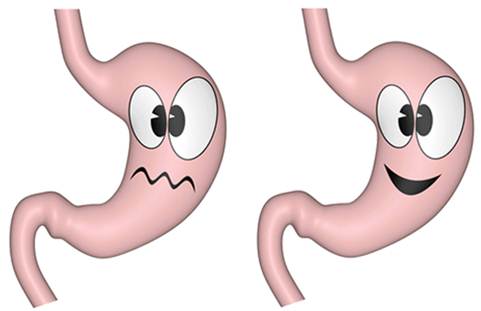How many times have you forgotten someone’s
name, or a specific word? What about losing your keys – how many minutes this
week have you wasted hunting for them? As we get older we worry that memory
slips such as these might be a sign of more serious brain issues but, in fact,
a lot of other medical or lifestyle factors can cause memory lapses. Could any
of these be behind your slip-ups?
Recent surgery
Whether it’s the impact of the anesthetic
drugs on the brain, or an inflammatory reaction isn’t yet known, but memory
problems do occur after surgery. “It’s rare in the under-40s, but in the
over-60s 25 per cent of people have some measure of cognitive decline seven
days after surgery and 10 per cent still have it three months after. We’d
expect a middle-aged group to be somewhere in the between,” says Dr Brendan Silbert
from St Vincent’s Hospital.
Silbert says there’s no way yet to predict
if the problem is going to happen, or how to treat it. However, some homeopaths
recommend the remedies Nux Vomica or Phosphorus to tackle post-anesthetic
memory effects.
Your weight-loss plan
In US studies, women who followed a
low-carbohydrate diet for a week performed significantly worse than those on a
high-care plan (even if those women had cut kilojoules). According to the
study’s author, Professor Holly Taylor, “this study demonstrates that the food
you eat can have an immediate impact on cognitive behavior”.
The theory is that quitting carbs reduces
your brain’s available glucose, which it uses for energy, so it doesn’t get
enough fuel to remember things. The good news is that when you introduce carbs
again, the problem reverses.
Heart problems
Recently, Professor Osvaldo Almeida from
the University of Western Australia found the heart failure patients have
actual physical changes in regions of the brain linked to functions like
memory.
Almeida wasn’t the first to link heart
problems and poor memory. French researchers found women with heart disease
risk factors like high cholesterol and high blood pressure scored seven per
cent lower on memory tests than other women.
“It’s not clear why heart failure is
associated with loss of cerebral cells and worse cognitive function,” Almeida
says. However, he suggests that adopting a healthy lifestyle and managing risk
factors like high blood pressure and diabetes might help stop memory loss
developing in non-sufferers. It may also help prevent its potential escalation
in those already affected, he says.
Low stomach acid levels
One of the most important vitamins for
memory is vitamin B12, commonly found in meat. The problem is that absorption
of this is reduced if you have low levels of stomach acid. “And as we age we
naturally secrete less gastric acid,” says naturopathic nutritionist Olwen
Anderson. “Stress can also lower levels.”

Signs that you might have low stomach acid
include reflux and heartburn and a feeling of food sitting in your stomach
after eating. If you are affected, starting meals with something bitter –
either foods like rocket or a special digestive tonic like herbal bitters – can
encourage acid production.
Your medications
You can’t remember something if you didn’t
retain it in the first place – and medications can affect this process. In his
new book, Younger Brain, Sharper Mind (Rodale, $36.95), US anti-ageing
specialist Dr Eric Braverman talks about the importance of brain speed in
memory retention. If thinking slows too much, “the neurons no longer fire off
information and new information will not become embedded in the memory”.
Typically, we lose seven to 10 milliseconds
of brain speed per decade from the age of 20, which is why memory fades with
age, but some things can interfere further with the process – including many
drugs, both prescription and over the counter. If you’ve noticed problems, ask
your GP.
The contraceptive injection
Many women using the contraceptive Depo
Provera talk anecdotally about memory slips as a side effect, and now there
might be an explanation. Researcher Blair Braden from Arizona State University
has found animals given the hormone medroxyprogesterone acetate (MPA) – the
active ingredient in Depo Provera – had more difficulty remembering things as
they aged than others. It’s suspected that MPA affects the neurotransmitter
GABA. “What GABA does is slow the brain down,” says Braden. “If there is too
much of it, it can make it more difficult to produce memories. But if there are
too little you also can’t produce memories correctly.”
The researchers say they need to confirm
the link in women to conclude that the jab impacts on memory.

Sleep apneal
People who have sleep apneal suffer what
sleep researchers call micro-arousals throughout the night. In these, you wake
up for a few seconds but it’s so fast you don’t even realize you’ve done it –
the problem is, your brain does. “Short-term memories have to be consolidated
into long-term memories or they are lost,” says Professor H Craig Heller from
Stanford University. “We believe this process occurs during sleep, in
particular during a stage called non-REM sleep, and that fragmentation of that
sleep can interfere with it.”
Allergy sufferers also suffer micro-arousals,
so if your memory seems worse during hay fever season, that could be why.
Using too much technology
Relying on mobile phones to remember
telephone numbers and appointments means most of us don’t use our memory as
often as we should, and like a muscle it gets weak and lazy without use. In
fact, Professor Ian Robertson from Ireland’s Trinity College Dublin, found
20-somethings who were reliant on technology actually had more trouble
remembering things like phone or PIN numbers than 50-somethings who grew up
committing things to memory.
Also, to remember something your brain has
to know to do so. Recent studies from the US’s Columbia University have
revealed that if we look facts up online we tend not to bother trying to
remember them because we know we can just find them again another time – so
they rapidly go out of our heads. If you need to remember something, write it
down.
Chemotherapy
Over 70 per cent of chemotherapy recipients
experience memory lapses and fuzzy thinking post-chemotherapy. Sufferers call
it “chemo brain” and, as yet, it’s not known if it’s the impact of cytotoxic
drugs used during treatment, inflammatory cytokines emitted by the cancer
itself or a combination of both that cause it. However, “it tends to affect
short-term memory and executive functions, like multi-tasking, especially at
times when you have to extend yourself or concentrate”, say Dr Haryana Dhillon,
one of the team studying “chemo brain” at the University of Sydney.
The good news is for most people it passes
after about six months. “In that time, managing other problems like stress,
anxiety, sleeplessness or depression that can also impact on memory can at
least stop it getting worse,” says Dhillon.
She also says there’s some preliminary data
to suggest that exercise – just enough to meet current physical activity
guidelines – may help improve chemo brain, or stop it occurring at all.
Peri menopause
Women often complain of memory issues
post-menopause, but US research shows the peri menopause – especially the years
just before the last period – is a worse time for learning and recalling new
things.
“The theory holds that menopause transition
symptoms like hot flushes or sleep problems are the reason for this,” says Dr
Gail Greendale from UCLA, “but our research doesn’t support that.”
A more likely theory is that the sudden
drop of estrogen at peri menopause triggers problems – estrogen is good for
brain regions responsible for memory. Greendale is testing that theory now but,
in the meantime, she says, “My best advice is don’t panic. This is not meant to
be glib. Part of what upsets women when they experience these (memory problems)
is that they are predictive of further decline, but our data shows that your
memory bounces back post-menopause”.